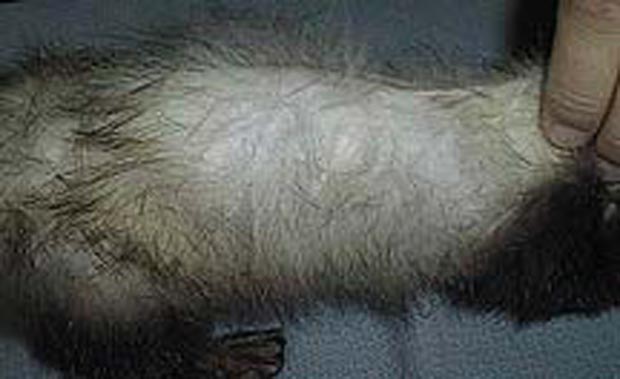Note: Though owning a ferret is illegal in California, it’s legal to own a ferret in several states. Ownership is regulated in a few of them. The Long Beach Post is an online publication, and we have a readership beyond Long Beach. Dr. Palazzo is not encouraging California residents to break the law, but is instead serving to inform ferret owners anywhere about veterinary care and responsibility for their pets.
In last week’s article, we covered insulinoma, or low blood sugar, in ferrets. This week, we’ll discuss another disease common in ferrets: adrenal gland disease. This condition is similar to the one that dogs and people suffer from called Cushing ’s disease (hyperadrenocorticism). There are distinct differences between the ferret and dog versions of this disease.
In dogs, there is an excess of cortisone (cortisol) secreted, causing a vast array of symptoms. In ferrets, it’s an excess of sex hormones (testosterone, progesterone, estrogen) that causes the symptoms. The cause is usually either a benign enlargement of the adrenal gland or a tumor, which might be benign or malignant. The most common symptom is hair loss in both male and female ferrets. Male ferrets might strain to urinate.
The diagnosis is based on such symptoms, a special blood panel looking for an excess amount of sex hormones, or ultrasound. Treatment is surgical in almost all cases. This is readily accomplished if the problem occurs in the left adrenal gland. When the tumor is in the right adrenal gland, removal is difficult because of the gland’s close adherence to a major blood vessel called the vena cava. In that scenario, we use a drug to help keep symptoms under control.
Early diagnosis and treatment is of particular significance in ferret adrenal disease. It’s imperative to not wait until the disease progresses to the point where almost all of the hair is gone. This is an indication that the adrenal glands have been diseased for quite a while.

This is an example of hair loss, or alopecia, in ferrets. If the disease is allowed to progress, the animal could lose all its hair. Further photos are available on the link below.
A page on our website has all the details needed to inform you of this common problem in ferrets.

